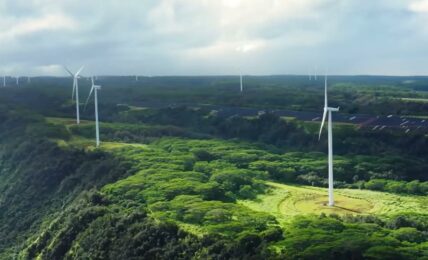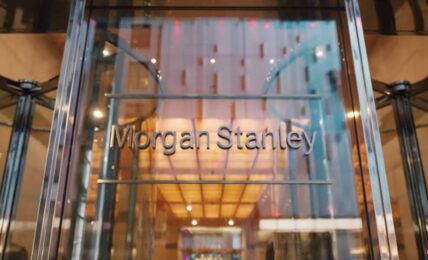By: John McCalla-Leacy, Global Head of ESG at KPMG
Last month COP28 closed in Dubai – achieving a number of landmark agreements and pledges. The summit took place in a nation that’s built its wealth on fossil fuels and amid a backdrop of a challenging geopolitical and economic landscape. As many governments and central banks grapple with inflation, supply chain bottlenecks and conflicts, a constant risk persists that immediate attention is placed on that which ‘seems’ most urgent, to the detriment of the important, and that ESG may slip off the radar. Personally, I left the UAE with a sense of cautious optimism. It wasn’t perfect, but the world seems to be moving in the right direction.
The agreement to ‘transition away from fossil fuels’ may have attracted criticism for the absence of ‘phase down’ language but the importance of the deal and how much it moves the debate forward should not be underestimated. The world is not there yet, but even recognizing on a collective level that there is a need to shift away from fossil fuels is a big deal. Coal, oil and gas account for three quarters of the world’s greenhouse gas emissions. The stark reality is that a failure to deliver a truly just energy transition, that meets the needs of both developing and developed nations – will be a failure to solve the climate crisis. Expect the world’s decision makers increase the number and depth of conversations on what actions are needed when they meet here in Davos and at future COP summits.
The COP28 summit demonstrated that there is growing awareness of renewable’s potential. There was agreement to aim to triple renewable energy capacity and double energy efficiency by 2030 whilst recognizing the need to peak global emissions by next year, 2025. The shift to renewables is a fundamental enabler to a low carbon economy, but it won’t be easy. KPMG’s report ‘Turning the tide in scaling renewables’ highlighted the challenges ahead. A majority of industry execs surveyed (84 percent) shared that current market barriers were causing delays to roll out or funding of renewable projects.
The research in the KPMG report highlights the scale of what lies ahead. Here in Davos, business and political leaders have an opportunity to act. As the world edges closer to 2030 all the evidence suggests we will struggle to meet the original Paris Agreement targets. Indeed, if all COP28 pledges are met, the world would still fall short of keeping global warming below 1.5 degrees. Despite growing commitment and consensus, there remains key barriers to unlocking new, cleaner sources of energy and more needs to be done to communicate in a simpler, more transparent way on the impact each of us is making – positively and negatively in the world.
This week there’ll be a lot about the potential of technology and innovation, which may be leveraged to accelerate action on climate. Among them – AI. It’s something I’ve spoken about recently and I’m excited about what it can do. Whether it’s analyzing large data sets to support companies’ disclosure requirements or helping to auto-generate company specific decarbonization pathways and build transition plans, AI’s possibilities are huge. But so too is its potential to actually add to the damage being done to the planet. With questions raised about the vast amount of computing power needed to meet the AI demand as well as how the world can ensure that AI is utilized with appropriate governance and controls.
Talk of innovation in potential future technology solutions is encouraging, but innovation is also needed in the way that businesses are managed. One example of how the business community is stepping up to this challenge, is the recent work of the World Business Council for Sustainable Development (WBCSD). Here 200 CEO-led organizations, including KPMG, are coming together to accelerate the transition to a net-zero world. WBCSD has provided guidance on how businesses may better embed the accountability for climate action into Corporate Performance and Accountability systems (CPAS) and drive the link between financial markets and sustainable business transformation.
As my week in Davos draws to a close – I recall the words of the UN Climate Change Executive Secretary, who at COP28 called “all the governments and businesses…to turn pledges into real economy outcomes, without delay”.
The work ahead, to deliver a just and low carbon economy resonates with the themes of Davos around security and trust, but these are set against the backdrop of more than half the world’s population going to elections 2024 at a time of ongoing geopolitical uncertainty. My view is 2024 will be a critical year. Business leaders should not wait for regulatory change. If you haven’t already acted, then act now. Embed ESG in everything you do. Put the right people and right tools in place with appropriate levels of funding. Monitor, measure and respond. The climate crisis is not something to worry about in the future. It’s happening now. For leaders – across business and politics – this is our collective moment to do the right thing.
John McCalla-Leacy is Global Head of ESG at KPMG International



